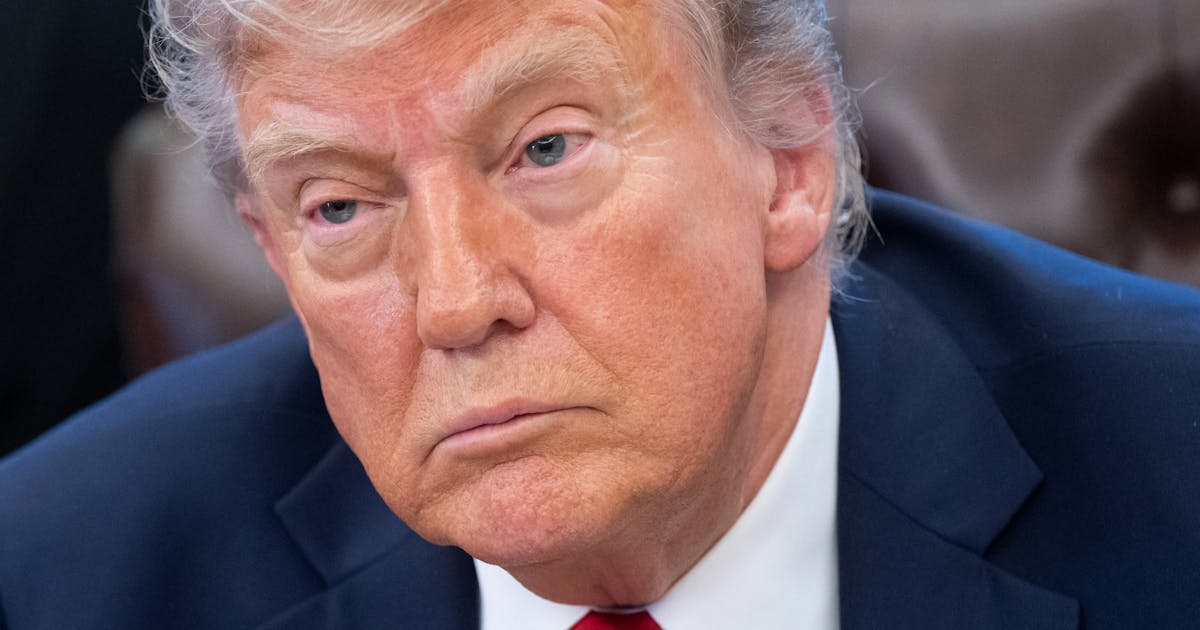
The Tide Turns: Independent Voters Rethink Trump’s Immigration Policies
In the ever-evolving landscape of American politics, the currents of public opinion are constantly shifting. Recent polls suggest a significant change is underway, particularly concerning former President Donald Trump’s stance on immigration. After campaigning on an explicitly ethno-nationalist platform and implementing what many see as authoritarian measures, Trump may be facing a backlash. This shift is not just about economic factors; it appears that a growing number of independent voters are reevaluating his approach to immigration, an issue that has historically been a strong point for him. The narrative that once resonated with a segment of the electorate is now facing challenges as the public scrutinizes the specifics of his policies and the implications of his actions.
The recent polls reveal a significant trend: independent voters, a crucial demographic, are increasingly disapproving of Trump’s handling of immigration. This disapproval extends beyond general attitudes and delves into specific policy details. This is a critical development, as independent voters often serve as a bellwether of public sentiment, and their shift can have significant implications for political outcomes. What was once seen as a winning issue for Trump is now becoming a potential liability, as the public’s perception of his immigration policies undergoes a transformation. The data suggests a growing unease with the specifics of his approach, including concerns about fairness, due process, and the rule of law. The potential erosion of support among independent voters is a key indicator of the changing political landscape and the evolving dynamics of public opinion.
The Cracks in the Foundation: Independent Voters and Immigration
The polls provide a detailed look at how independent voters are reacting to Trump’s immigration policies. A striking majority of independents disapprove of Trump’s handling of immigration. This disapproval is not just a general sentiment; it extends to specific policies, revealing a deeper concern about the underlying principles at stake. A significant percentage of independent voters oppose deporting international students who have criticized U.S. policies, indicating a reluctance to punish individuals for expressing their views. Moreover, a majority of independents object to sending undocumented immigrants suspected of criminal activity to foreign prisons without due process, highlighting a concern for fundamental rights and fair treatment. Even the case of Kilmar Abrego Garcia, where Trump’s propaganda appears to be failing, shows that the public is questioning the ethics of the policies being enacted.
This shift among independent voters is not merely a matter of differing opinions; it touches upon fundamental principles of fairness and due process. The actions being taken, such as renditions to foreign locations and the treatment of migrants, raise serious questions about the rule of law. These actions, which seem to defy the principles of due process and fair hearings for all, are likely contributing to the growing disapproval among independent voters. It’s a case of people seeing how the policies are being applied and questioning whether they align with the values of fairness and justice. The shift is likely being driven by the perception that Trump’s administration is engaged in extralegal abuses of power, which are undermining his image as a decisive leader and resonating with the growing disapproval among independent voters.
Beyond Immigration: The Broader Context of Trump’s Challenges
While immigration is a critical factor in the changing public sentiment, it’s essential to understand that it’s not the only issue at play. Trump’s broader actions and policies across various domains are also influencing independent voters. The perception of lawlessness, the disregard for court orders, and the attempts to undermine institutions are all contributing to the erosion of support. Independent voters are looking at a wide range of issues, and Trump’s actions in all areas are being viewed critically.
The context of these policies includes the administration’s actions that are perceived as authoritarian, which are contributing to the rising disapproval. The focus on specific examples, such as the treatment of migrants and the potential abuses of power, helps to illuminate the bigger picture. The recent Reuters/Ipsos poll found a high percentage of voters wanting Trump to follow court orders and opposing his attempts to cut off funding to universities, which suggests that the issue is not limited to immigration. The actions, which are being presented in the media, create a sense of crisis and raise fundamental questions about the direction of the country. This broader context helps to explain why Trump is facing challenges and how his actions are contributing to the shift in public opinion.
The Road Ahead: Democrats’ Opportunity and the Future of the Debate
The evolving situation presents an opportunity for Democrats to engage on these critical issues. The imagery of unchecked lawlessness, the undermining of fundamental principles, and the disregard for due process are all creating a sense of crisis that can shift public opinion. By addressing these issues, Democrats can tap into the growing concerns of independent voters and offer a vision that upholds the principles of fairness and justice.
Democrats have the chance to change the narrative and shape the future of the debate. By focusing on the core values of fairness, due process, and the rule of law, they can connect with independent voters who are increasingly questioning Trump’s actions. The path ahead for Democrats involves a clear message that emphasizes the importance of these fundamental principles and that speaks to the aspirations of an electorate that values fairness and justice. The political landscape is in flux, and the shift in public opinion presents both challenges and opportunities for those who seek to shape the future of the debate.
